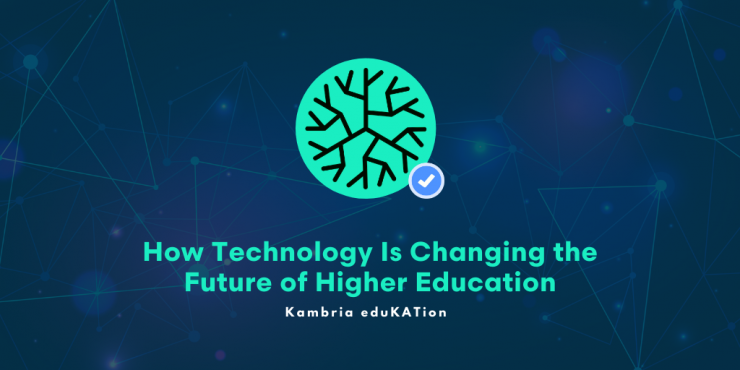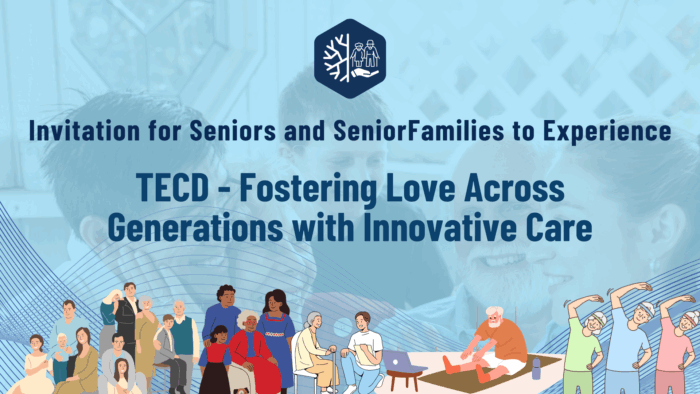
What is the role of higher education in modern society? Given the current COVID-19 crisis and the “new normal” we can expect in its wake, how can technology help shape the future of higher education? According to British Council, the class of 2025 will face the most competitive job market in history and be mainly made of freshmen from 2020/2021. With the aforementioned crisis underway, these students will learn to rely on technology far more than their predecessors, gaining a distinct edge on the market.
According to Third Way, 15% of US-based higher education institutions graduate less than half of their students, 33% of which graduate 25% or fewer students. We are in a state of flux, where technology has the potential to shape norms in higher education to enable students to prepare for tomorrow. With that in mind, let’s explore how technology is changing higher education and what standards we can expect in academia in 2020 and beyond.
Decentralized Learning
One of the most crucial changes which stem from integrating technology into higher education lies in decentralized learning. It is no longer required for students to commute or outright move to different cities/states/countries in order to gain the desired degree. According to IIE, international students make up 5.5% of total US higher education attendees, with 51.6% pursuing STEM fields, mainly in math and computer science. With the rise of cloud-based computing, high-speed bandwidth and increasingly affordable smart devices, students from around the world can attend the institutions they want.
Michelle Avery, Head of Business Development and Writer at Top Essay Writing, spoke on the topic recently: “Life-long-learning has become the norm. Whether you opt to work as an independent contractor or a large-scale company employee, LLL will undoubtedly become second-nature to you. Teaching academic students the value and utility behind technology in education can and inevitably will ingrain modern professional development habits in them early on.”
Reinvention of Credit Systems
There’s no denying that traditional grading systems have been efficient at helping higher education students showcase their academic prowess. However, the shift toward digital technologies has opened the door for a creative gamification program to be introduced to academia. Gamification of education for current freshmen and their successors can have a massive impact on the way teens and adolescents perceive higher education.
With streaming platforms such as Netflix and video games such as Fortnite already implementing gamification features, young generations know what they are getting into. Likewise, the points gained in a gamified academic ecosystem can lead to unique rewards such as seminars and internships for high-performing students. This would effectively level the playfield with youth’s modern mindset and facilitate better engagement, interest and takeaways for students in higher education.
Subscription-Based Tuitions
Academic education puts a hefty toll on students and their families in regards to tuition and living expenses. However, what if we could forgo traditional tuitions in favour of pro-student programs centred on online learning?
The example of Boise State and its Passport to Education program indicates that such a shift toward subscription-based learning is quite possible. Writing tools such as Evernote, Subjecto and Grammarly are used to write application letters and essays to further emphasize the role of technology in education. If students can pay per month for higher education, they will be more inclined to enrol in academia and make the most of it. In turn, we would see more students, and subsequently, more educated professionals on the job market in the coming years.
Artificial Intelligence Integration
The topic of technology in higher education wouldn’t be complete without addressing AI and its implication in the future of academia. Whether as chatbots, assessment tools or outright tutors, AI algorithms can allow for personalization of academic curriculums on an unprecedented level.
According to Harvard Business Review, The University of Murcia in Spain tested AI-enabled chatbots as assistants for student FAQs. With more than 38,708 queries, the AI managed to correctly answer more than 91% of them, proving that artificial intelligence can indeed augment higher education. AI algorithms in academia can help process tremendous amounts of student-generated data and help tutors identify bottlenecks and development opportunities for students more precisely. As a support tool, AI will undoubtedly cause a positive shift toward data processing automation, enabling teachers to pay more attention to their student bodies.
Increased Curriculum Accessibility
It’s inevitable that some students will have health issues which would limit their abilities to attend individual curriculums alongside their peers. According to QS, 11% of US students and 15% of UK students have some form of disability. Likewise, students on a sick leave always fear the worst will happen in regards to their academic performance due to unforeseen absence. This doesn’t make these students any less valuable than others, which is where technology can fundamentally change the way we perceive higher education.
Teachers can use technological devices and software to provide students with lecture transcripts, audio recordings, interactive exercises, AR/VR demonstrations and other innovative forms of learning. Creating digital data of live lectures or outright shifting the curriculum to cloud-based platforms can significantly improve the accessibility of higher education for many. In the long run, such a shift toward increased accessibility will improve student attendance and encourage individuals to follow along at their own pace.
Future-Proof Learning (Conclusion)
For better or worse, traditional education is on its last legs when it comes to standardized curriculums which have remained unchanged for decades. With COVID-19 crisis underway, now is the time to innovate and break new ground in regards to the future of higher education.
A shift toward digital will ensure that students are equipped with digital know-how which has become mandatory on the modern job market. Enable your students to learn at their own pace, constantly, and in creative ways with digital technologies. While results of such an initiative won’t be visible for years to come, now is the time to get the ball rolling toward the future.
Want to get started with your education? We have just the thing for you!
Kambria eduKATion's Foundations of Machine Learning is now live on our website. If you have not yet signed up, now is your chance to jump-start your education and learn from top experts in AI and machine learning!
Built by leading AI experts in Silicon Valley and Vietnam, this course will provide students with the knowledge and skills needed to start a career in the field of Artificial Intelligence. Beginners are welcome and encouraged to register!
Industrial Revolution 4.0 is on the rise, and Vietnam's Government has identified Artificial Intelligence (AI) technology as a top priority since 2014. The Government and enterprises are currently investing in research and putting AI into practice. AI should increase the profitability of workers and therefore generate incentives to stimulate strong economic development. Therefore, research and learning about AI becomes more essential than ever.
Foundations of Machine Learning is an international-quality AI course for Vietnamese students, advised by top AI experts in Silicon Valley and Vietnam. The course is built on the cooperation of three reputable technology organizations: VietAI as a training organization; Kambria as an educational platform to help connect students with instructors; and John Von Neumann Institute as a knowledge partner.
: https://bit.ly/2EahbNk
: http://bit.ly/FoundationsML







